Kenya
Our programme in Kenya
Since the start of recent political and economic shifts following the 2022 elections, Kenya has been navigating a complex landscape shaped by governance changes, economic reforms, and pressing social challenges. The new administration has introduced fiscal policies aimed at reducing the budget deficit, curbing public spending, and addressing concerns over debt sustainability. These measures, however, have sparked widespread debate, particularly around taxation and the rising cost of living, leading to heightened public scrutiny and increased civic engagement. Critics argue that the policies disproportionately affect low-income households, while proponents emphasise their necessity for long-term economic stability.
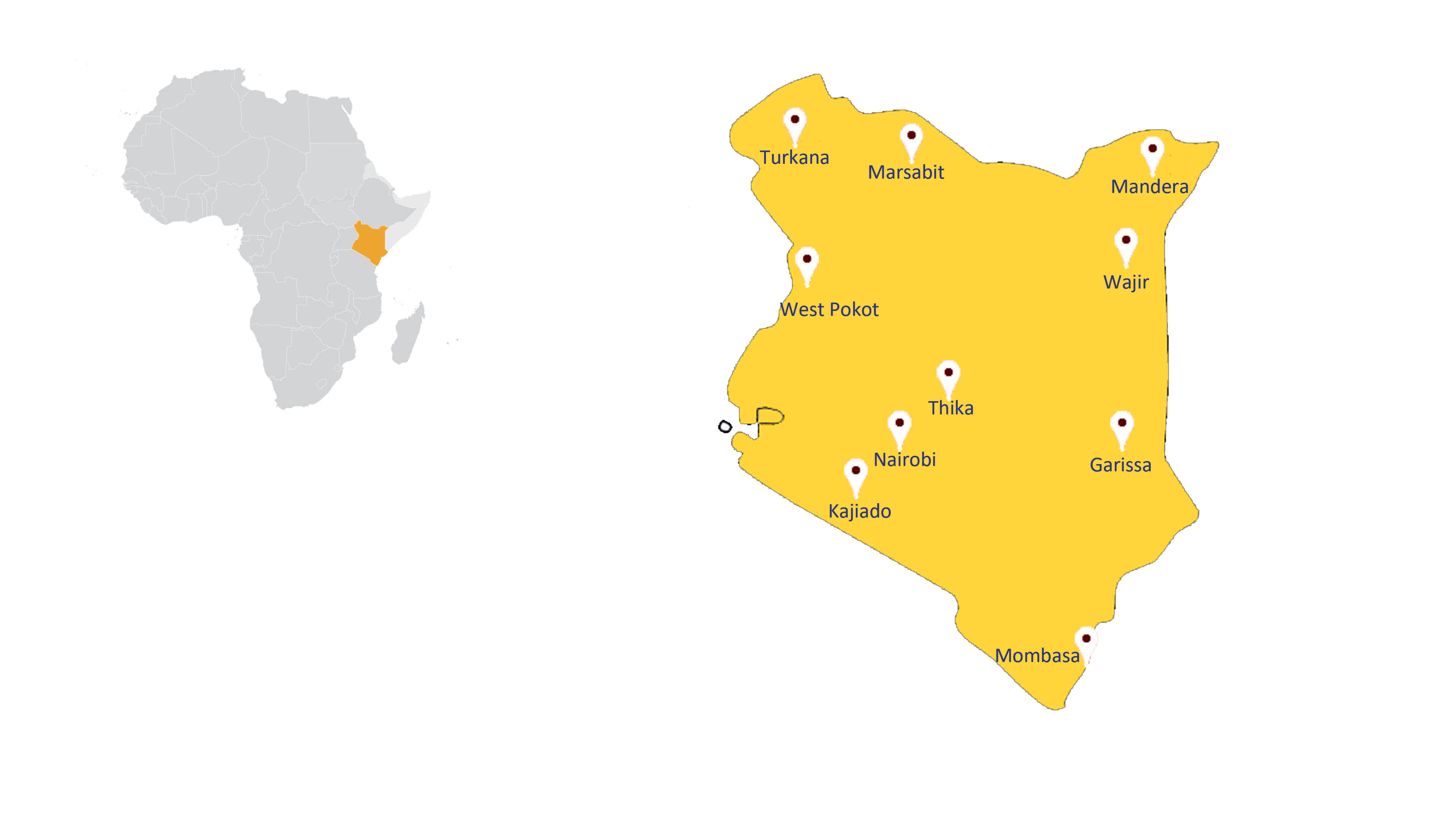
In 2024, Kenya’s youth stunned the world with a leaderless, digitally fuelled uprising against the Finance Bill 2024—a tax proposal that would have deepened economic hardship for millions. What began as online outrage transformed into a nationwide nonviolent movement, forcing the government to backtrack. But this was more than a protest; it was a masterclass in strategic peacebuilding, offering lessons for youth activism globally. Unlike past protests marred by partisan agendas or vandalism, Gen Z protesters consciously avoided violence, even as police responded with live ammunition. This restraint amplified their moral legitimacy—a core principle of conflict transformation. Protesters used Artificial Intelligence (AI) tools to translate legalese into Swahili and Sheng, demystifying the bill for marginalised communities. Social media became a real-time early-warning system against police brutality, while crowdsourced fact-checking countered state disinformation. The government’s withdrawal of the bill was historic—but without institutional reforms, such wins risk being temporary. By 2025, youth coalitions pushed for permanent youth advisory councils to sustain their voice in policymaking.
Kenya's Gen Z movement demonstrated the power of strategic nonviolent action, transitioning in 2025 from opposing the Finance Bill to advocating for systemic conflict transformation. Their disciplined commitment to peaceful protest - despite facing state violence that tragically claimed lives - created moral and political pressure that forced unprecedented accountability measures. The resulting Twitter Space dialogue with President Ruto represented a rare breakthrough in state-citizen engagement, showing how sustained nonviolent pressure can open spaces for meaningful dialogue.
This youth-led movement evolved into a broader peacebuilding initiative, addressing root causes of conflict through demands for anti-corruption measures (including COVID-19 fund audits), security sector accountability, and electoral justice reforms. The movement's success in achieving policy change through nonviolent means inspired similar youth-led peacebuilding efforts across Africa, though with varying outcomes due to differing political contexts.
However, the movement faced significant peacebuilding challenges in 2025: escalating state restrictions on digital spaces threatened conflict prevention mechanisms, while maintaining movement cohesion post-victory required careful conflict management. The Kenyan experience offers valuable lessons in nonviolent conflict transformation - particularly how youth can leverage technology for civic education and early warning systems while navigating the delicate balance between sustained pressure and creating space for institutional dialogue.
These events highlight emerging models of youth-led peacebuilding that combine mass mobilisation with demands for institutional reform. The movement's evolution demonstrates how nonviolent civil resistance can both achieve immediate policy goals and lay groundwork for longer-term structural transformation, while facing the ongoing challenge of converting protest energy into sustained peacebuilding infrastructure.
On the regional stage, Kenya remains a key player in diplomacy and peacekeeping. The country also plays a pivotal role in addressing trade and migration dynamics within East Africa, balancing its economic interests with regional stability. Domestically, rapid urbanisation in cities like Nairobi and Mombasa has fuelled economic growth but also exacerbated challenges such as informal settlements, inadequate housing, and strained public services. These issues are compounded by Kenya’s youthful population, with a median age of 20 years, which presents both opportunities for a dynamic workforce and challenges in addressing high youth unemployment.
Ethnic diversity, a defining feature of Kenya’s social fabric, enriches its cultural heritage but also occasionally fuels political and social tensions, particularly during election cycles. While efforts to promote national cohesion have been made, deep-seated inequalities and historical grievances continue to pose risks to social harmony. As Kenya moves forward, balancing these multifaceted challenges with its aspirations for economic growth and regional leadership will require inclusive policies, robust institutions, and sustained engagement with all stakeholders.
LPI Work in Kenya
The Life & Peace Institute (LPI) Kenya programme is committed to advancing peace and conflict transformation across Kenya by empowering communities to lead sustainable peacebuilding initiatives. Employing participatory approaches, the programme collaborates with civil society groups, international organisations, national institutions, and grassroots actors to tackle the root causes of conflict. By fostering inclusive dialogue, enhancing community resilience, and strengthening local governance structures, LPI helps to develop long-term solutions that promote coexistence and stability. A particular focus is placed on the inclusion of youth and women in peace processes, recognising their pivotal role in shaping Kenya’s future. Over the years, the Kenya programme has extended its reach to diverse regions across the country, including Garissa, Kajiado, Mandera, Marsabit, Mombasa, Nairobi, Thika, Turkana, and Wajir, ensuring that peacebuilding efforts benefit both urban and rural communities.
In Nairobi, LPI has been actively engaged in informal settlements, working closely with communities in Babadogo, Dagoretti, Eastleigh, Kangemi, Kayole, Kiambiu, Kibera, Korogocho, Majengo, and Mathare. A cornerstone of LPI’s approach is its Dialogue for Peace methodology, which fosters understanding and cohesion as a means to address conflict, alongside the Small Grants Initiative. The latter provides local organisations with access to funding to develop context-specific, community-led peacebuilding solutions. By investing in grassroots initiatives, LPI ensures that communities are not only resourced but also empowered to design and implement interventions tailored to their unique challenges. Through conflict-sensitive, research-driven interventions and policy engagement, the programme bridges local peace efforts with broader governance frameworks, ensuring that grassroots voices influence decision-making at national and regional levels. Dedicated to sustainable peace, LPI continues to partner with local actors to transform conflicts, strengthen social cohesion, and build a more peaceful and resilient Kenya.
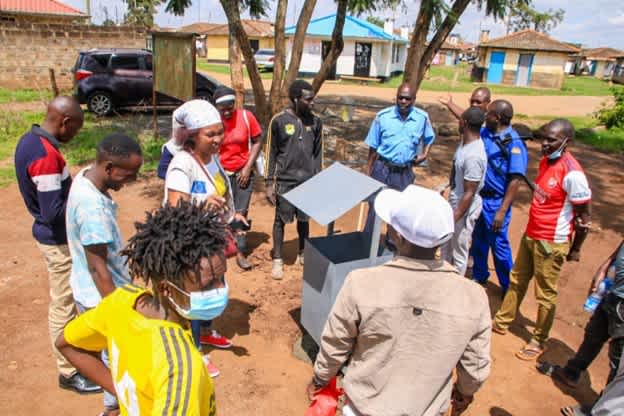
Our Work
The Life & Peace Institute (LPI) Kenya Programme aligns its work with the broader LPI Strategic Priorities for 2023–2027, ensuring that peacebuilding efforts are systematic, holistic, and inclusive. These priorities guide our approach in Kenya, strengthening community resilience, fostering dialogue, and influencing policy to create sustainable peace.
Inclusive Engagement for Peace – We facilitate dialogue among diverse stakeholders, including youth, women, informal traders, and marginalised communities, to ensure that peace processes are inclusive and truly representative of those most affected by conflict. Through sustained dialogue approaches, we bridge divides between communities in conflict, employing innovative methods such as women’s talking circles—a trauma-informed peacebuilding strategy—rapid response dialogues, town hall forums, and other community-driven initiatives. Our approach is intentionally varied, blending formal and informal engagement to maximise reach and impact. For instance, we harness the power of art for peace to engage a broad spectrum of community members, including hard-to-reach youth, ensuring that no voice is left unheard in the pursuit of lasting peace.
Policy Engagement and Awareness-Raising – We actively engage in shaping policies at both national and international levels, while simultaneously raising awareness at the local level about critical frameworks such as the Youth, Peace, and Security (YPS) and Women, Peace, and Security (WPS), as well as county-level peace and emerging Climate, Peace and Security agendas. Our efforts focus on ensuring that communities are not only informed but also actively participate in decision-making processes. This is achieved by localising policies and advocating for their adoption at the grassroots level. Through targeted advocacy efforts—including petitions, lobbying, and other strategic approaches—we amplify community voices and ensure they are meaningfully integrated into policy reforms, fostering inclusive and sustainable change.
Collaborative Learning to Enhance Practice and Policy – We place a strong emphasis on research-informed approaches, consistently designing programmes that are grounded in robust evidence. The research reports we produce not only shape our initiatives but also play a pivotal role in influencing policy decisions. A selection of these reports is highlighted in the resources section below, reflecting our dedication to developing evidence-based interventions. By prioritising knowledge-sharing, capacity-building, and research-driven strategies, we ensure that both practice and policy remain responsive to the evolving needs of conflict-affected communities.
Through collaborative partnerships with civil society, government, academia, and strategic networks, we serve as a convenor, facilitator, and intermediary. By connecting diverse actors, we foster collective efforts to drive policy reform, advance conflict transformation, and support long-term peacebuilding in Kenya. This collaborative approach ensures that multiple perspectives are integrated, strengthening the impact and sustainability of our work.
CURRENT PROJECTS
CAPACITY 4 PEACE (C4P) (2023-2025) – Funded by SMC, this initiative aims to build resilient communities in Garissa by enhancing social cohesion, fostering climate change adaptation, reducing environmental degradation, and promoting more meaningful engagement between policy actors and civil society organisations. The project specifically targets underrepresented groups, including women, youth, government actors, and civil society, within the Township and Balambala constituencies. By empowering these groups, C4P seeks to strengthen community resilience and foster inclusive dialogue.
A notable achievement of the project has been its facilitation of collective, community-led initiatives to address pressing local challenges. For instance, during the intervention, the project played a key role in mobilising communities to tackle the issue of food price hikes, ultimately leading to the county government issuing a directive to curb excessive price increases. This outcome underscores the project’s commitment to empowering communities to drive tangible, locally led solutions to socio-economic and environmental challenges.
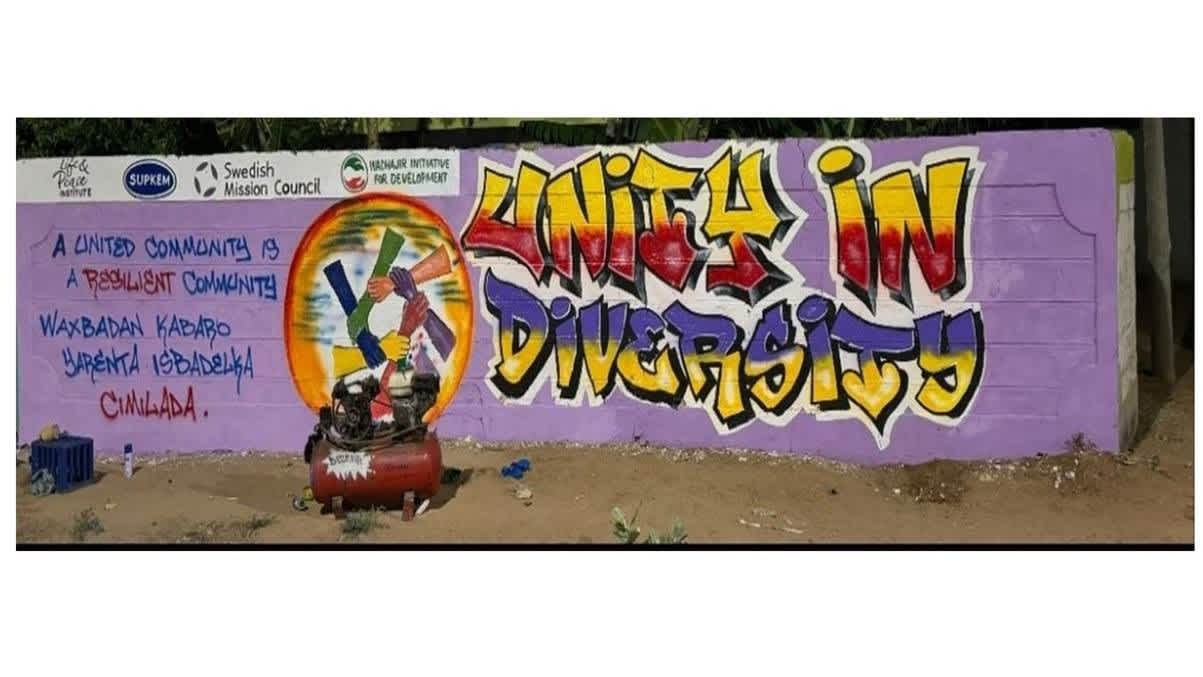
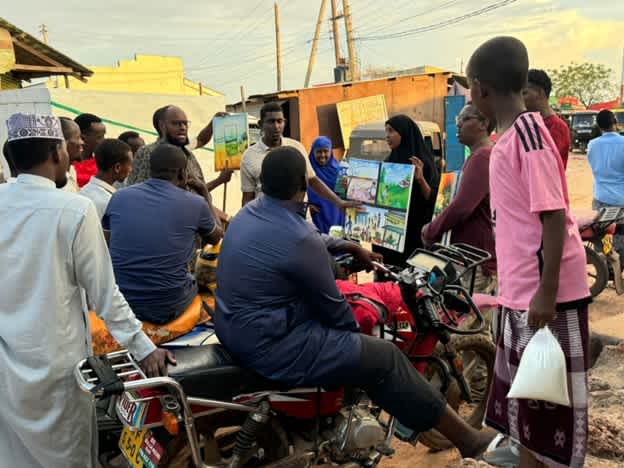
Promoting Socio-Economic Development and Peace in the Borderlands of the Karamoja – Kenya – Uganda border Project (2024 – 2025)
Focusing on the Kenya – Uganda border we aim to enhance regional cooperation, conflict prevention, and resilience among pastoralist communities. Partnering with UNDP Africa Borderlands Centre (ABC), the project focuses on West Pokot County (Kenya) and Amudat and Moroto Districts (Uganda) to promote income generation, food security, climate resilience, and sustainable jobs by supporting agro-pastoralist value chains, cross-border trade, and access to finance, while fostering peace and social cohesion. Structured around UNDP’s Area-Based Portfolio Approach (ABPA), the project has four pillars:
Economic Resilience: Boosting livestock and climate-adapted crop production, productivity, and value chains.
Small Enterprise Support: Strengthening micro-enterprises and Informal Cross-Border Traders (ICBTs) through finance access and entrepreneurship training.
Small Infrastructure: Investing in climate-resilient water and energy infrastructure to improve mobility and trade.
Social Cohesion and Peacebuilding: Strengthening community ties and peace structures to foster stability.
LPI is at the forefront of Pillar 4, leveraging its expertise in community-driven conflict transformation to address historical tensions, resource conflicts, and economic vulnerabilities among the Turkana, Pokot, and Karamojong communities. Through inclusive, locally led approaches, we:
Empower women and youth,
Strengthen peace structures, and
Promote cross-border cooperation.
These efforts ensure sustainable development and foster long-term stability in the region.
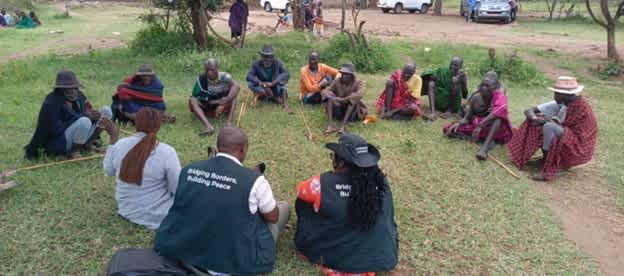
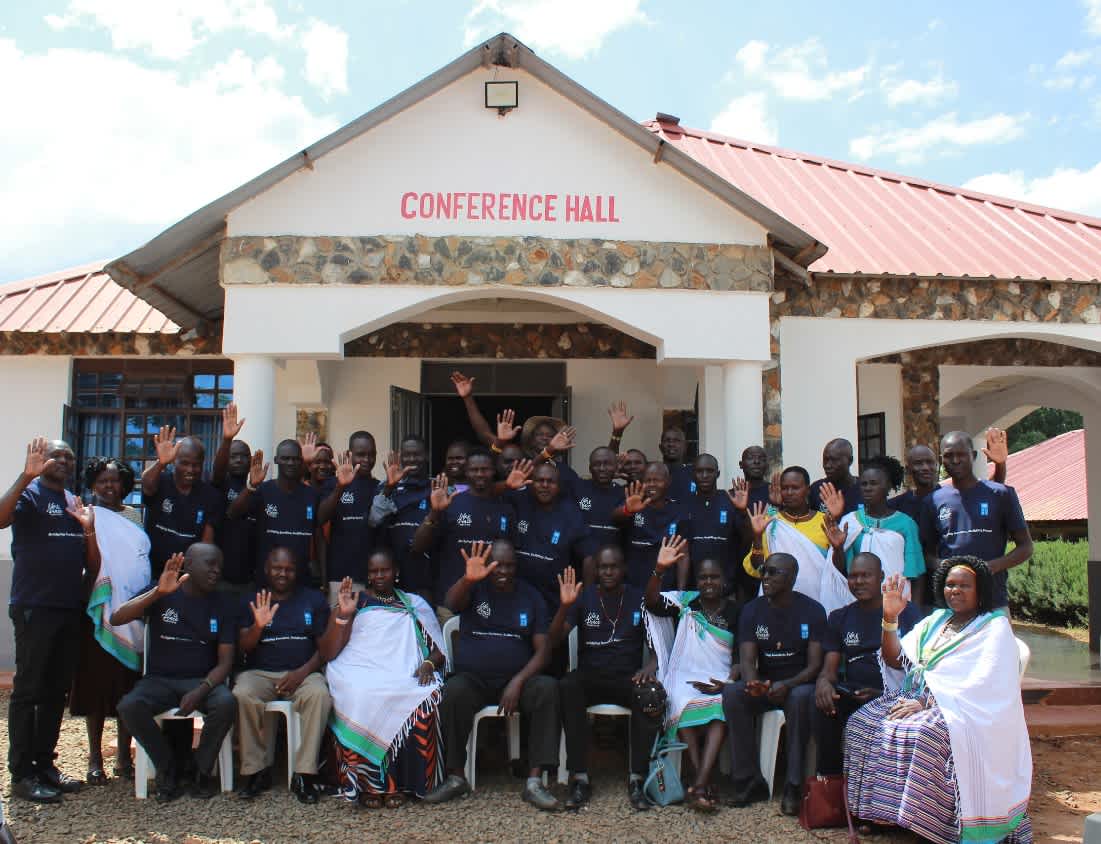
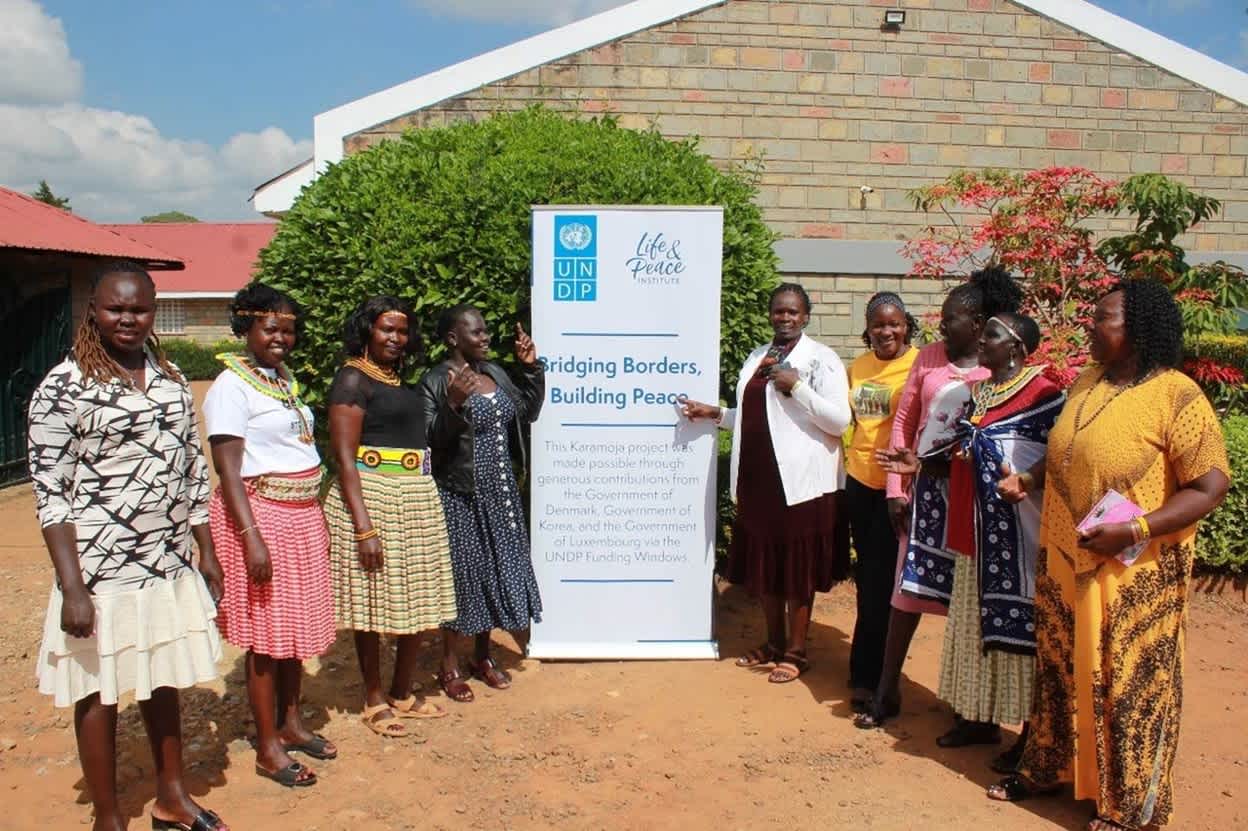
MOBILITY AND MOVEMENT: Cross-Border Resilience in Moyale (2024- 2026) – We are dedicated to enhancing conflict prevention, disaster risk management, and resilience-building in cross-border communities across the Horn of Africa. This 36-month initiative, running from 2024 to 2026, is funded by the European Union (EU) and implemented by a consortium led by the Life & Peace Institute (LPI) in partnership with Mercy Corps Kenya (MC), and Pastoralist Concern (PC).
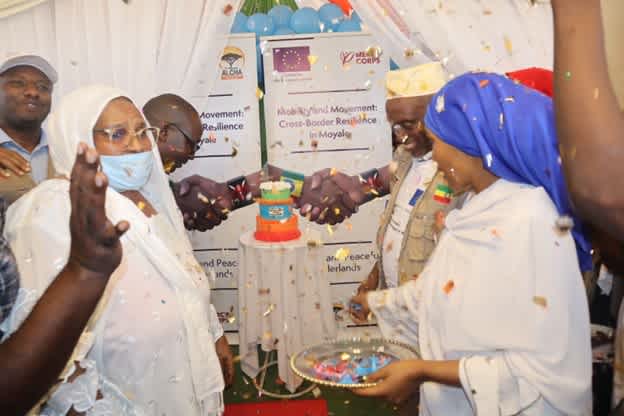
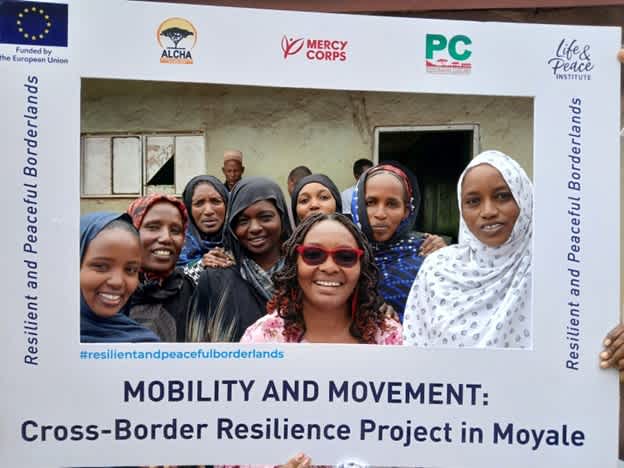
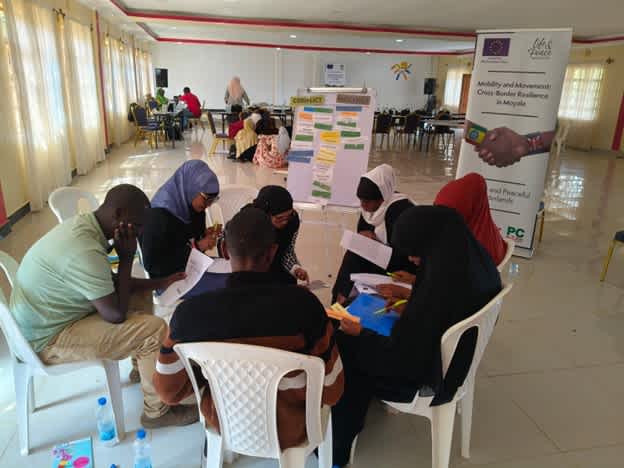
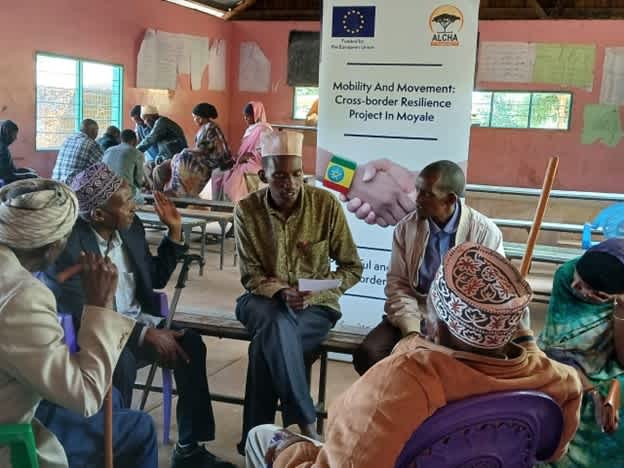
Our work focuses on four key cross-border corridors: Dilo–Dukana, Hidi Lola–Sololo, Magado–Forolle, and Moyale Ethiopia–Moyale Kenya. Through participatory processes, we empower local actors to address long-standing drivers of conflict and improve livelihoods. By strengthening conflict prevention capacities, expanding access to income-generating opportunities, and influencing policy processes, we ensure that civil society actors, informal traders, government representatives, and communities—particularly women and youth—play a central role in shaping sustainable peace.
TUIMARISHE AMANI MJINI (2025) – This project aims to reduce urban violence in Nairobi by strengthening collaboration between rights holders and duty bearers across six informal settlements: Kangemi, Kayole, Kibera, Korogocho, Mathare, and Majengo. The project will focus on enhancing relationships between state and non-state actors, including sub-county peace committees, county peace forums, community policing structures (Nyumba Kumi), elders’ committees, and hard-to-reach youth and women groups. By fostering inclusive engagement in peacebuilding, we aim to ensure that all voices are heard and represented in efforts to address urban violence.
Through grassroots-level interventions, the project seeks to build local capacity, transform urban violence, and promote sustainable peace. This will be achieved by strengthening partnerships among government agencies (such as security actors and administrators), civil society organisations, and intergenerational community representatives. By adopting a coordinated and community-driven approach, the project ensures that urban peacebuilding efforts are both inclusive and effective, addressing the root causes of violence while empowering communities to lead their own solutions.
CAPACITY STRENGTHENING AND TECHNICAL TRAINING (2023-2025) - We are currently implementing dialogue accompaniment in Mukuru, an urban informal settlement, in partnership with the Fellowship of Christian Councils and Churches in the Great Lakes and Horn of Africa (FECCLAHA). This initiative supports their youth peace clubs, fostering inclusive, locally driven peacebuilding efforts following a successful Resilience and Conflict Analysis Training (RCAT) in 2024. This work forms part of an ongoing collaboration with the Church of Sweden (CoS), aimed at strengthening Civil Society Organisations (CSOs) through targeted training, advocacy, and collaborative initiatives to enhance conflict transformation efforts.
In partnership with the Church of Sweden, LPI has conducted a series of capacity-building trainings, including Triple Nexus, Resilience in Conflict Analysis, and Bottom-Up Advocacy Policy Engagement, for Act Alliance members in South Sudan, Kenya, and Uganda. These trainings equip CSOs with the skills to address humanitarian, development, and peacebuilding challenges in an integrated and holistic manner. By fostering stronger partnerships between CSOs and government actors, we promote sustainable responses to conflict, empowering local actors to scale interventions and drive lasting, community-centred change.
Partners are key to our success
Supreme Council of Kenya Muslims (SUPKEM) is a registered faith-based organisation since 1973, serves as the umbrella body for all Muslim organisations, societies, and mosque committees in Kenya. With 47 independently managed county offices, SUPKEM’s Garissa County branch operates through an elected county board, a dedicated secretariat, and a network of volunteers who support programmes in peacebuilding, governance, human rights, education, livelihoods, and religious affairs. As the longest-serving civil society organisation in Garissa, SUPKEM is a trusted institution among both citizens and the government. It collaborates with government agencies, NGOs, and community-based organisations to advocate for community well-being, focusing on strengthening democracy, promoting human rights, and fostering non-violent conflict resolution.
Pastoralist Concern (PC), founded in 1995, promotes sustainable pastoralism economically and culturally. It supports education, health systems, and climate-smart agriculture, emphasizing traditional resource management. PC works to include women and youth in livestock value chains and is active in local chambers of commerce, promoting peaceful coexistence through traditional dialogue and peacebuilding.
Mercy Corps (MC) is an international organization focusing on resilience in conflict-affected and climate-impacted areas. It aims to improve systems' adaptability to shocks and threats, with a commitment to local leadership. MC works on market integration, private sector expansion, and enhancing livelihoods for women, youth, and excluded groups.
PEACE IN OUR CITIES is a global network working to reduce urban violence by engaging both mayors and local civil society to amplify the scale and solutions of the urban violence problem, advance evidence of what works to reduce urban violence, and accompany local experts and city leaders in their violence reduction priorities.
TRAININGS
1. Resilience in Conflict Analysis Toolkit (RCAT)
In 2019, LPI spearheaded a groundbreaking locally-led research initiative, focusing on regions affected by prolonged and protracted conflicts to examine the sources of individual and community resilience. This initiative led to the creation of the Resilience in Conflict Analysis Toolkit (RCAT), a robust resource designed to integrate resilience into programming within the Humanitarian, Development, and Peacebuilding (HDP) framework. RCAT identifies eight key resilience themes, offering profound insights into how resilience can transform communities and address everyday challenges. Beyond its practical applications, the toolkit has been hailed as a therapeutic resource, enabling individuals to reflect on their actions and personal growth. Its adaptability ensures relevance across diverse contexts, making it an indispensable tool for fostering community cohesion and resilience.
The sustained application of RCAT across multiple sectors highlights its enduring impact well beyond the initial project. LPI continues to receive widespread demand for RCAT training and partnerships, collaborating with organisations such as the Peace Bridge Association in Sudan and members of the ACT Alliance in Juba, South Sudan, and Uganda. Local community organisations, including HAART Kenya and the Kenya 4 Resilience Consortium, have also adopted RCAT strategies, demonstrating its replicability and relevance in varied settings. The global uptake of RCAT underscores its transformative potential, providing practical, interactive approaches that promote reflective learning and drive lasting change in communities.
LPI offers an immersive five-day RCAT training programme, complemented by personalised accompaniment to ensure the toolkit’s effective application in diverse contexts. This training equips participants to transform challenges into opportunities for resilience, empowering communities to thrive amidst adversity.
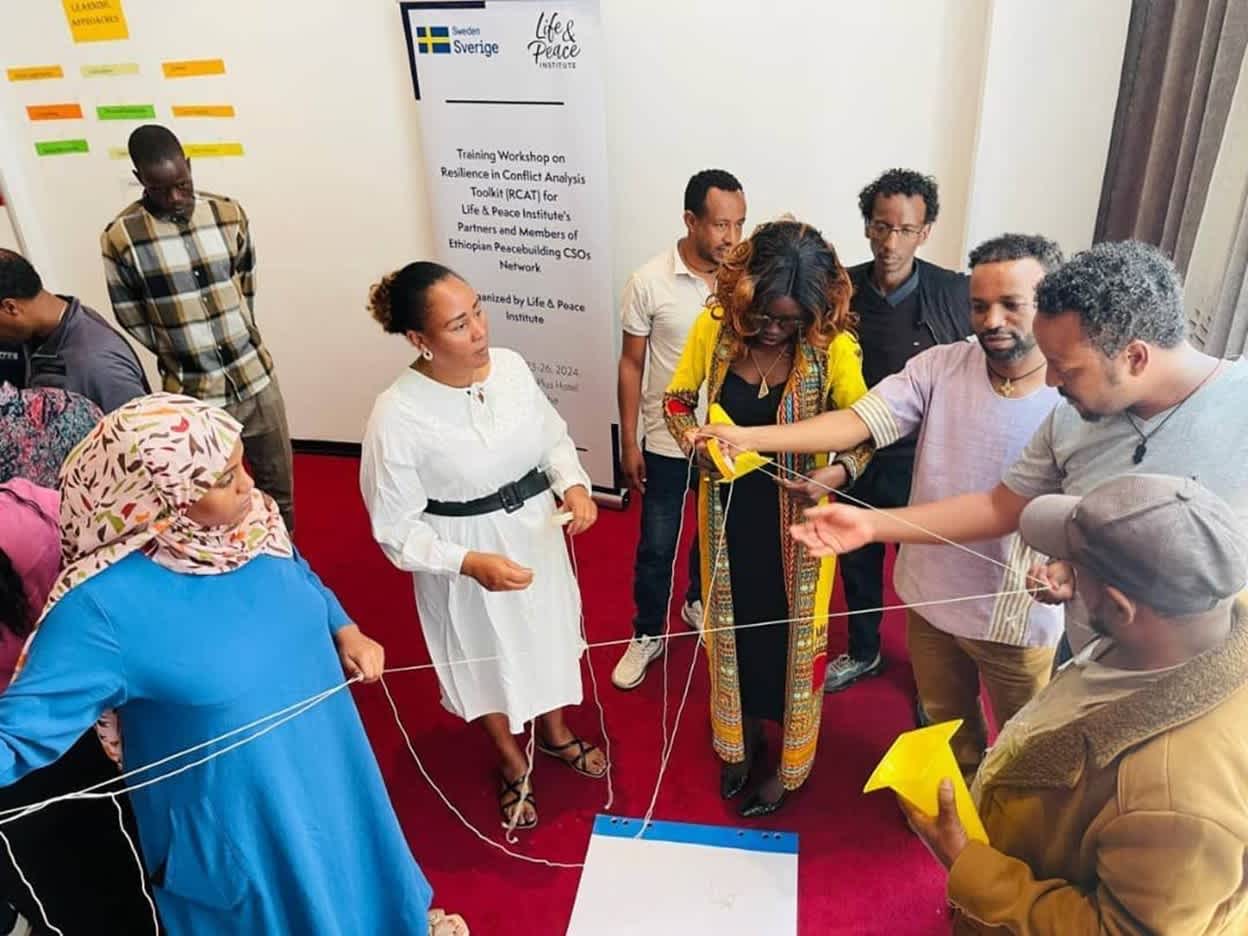
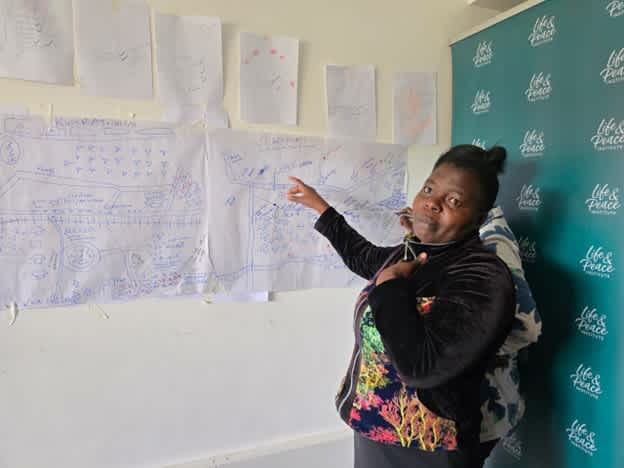
2. Conflict Sensitivity Training
The conflict sensitivity training is a transformative learning experience designed to equip participants with the knowledge and skills to integrate conflict sensitivity into peacebuilding, humanitarian, and development work. Over three days, the training combines theoretical insights with practical, participatory methodologies, covering essential topics such as conflict dynamics, conflict analysis, and the principles of conflict sensitivity, with a strong emphasis on inclusive communication and participatory approaches. Participants will explore how to contextualise conflict sensitivity within the Triple Nexus framework, linking humanitarian, development, and peacebuilding efforts, and gain hands-on experience in conflict-sensitive planning. Conflict sensitivity is crucial for all programming involving communities, as it ensures interventions do not inadvertently exacerbate tensions or harm local dynamics. By understanding context, power structures, and relationships, practitioners can design programmes that promote peace, inclusivity, and sustainability, particularly in fragile and conflict-affected settings. This workshop emphasises participatory methodologies, fostering ownership and trust within communities, and is ideal for peacebuilders, development practitioners, and humanitarian workers seeking to strengthen their skills and make a meaningful impact. LPI has trained the Kenya 4 Resilience network and SUPKEM among other community-based organisations contribute to sustainable, conflict-sensitive programming.
3. Dialogue and Facilitation Training
LPI offers a five-day training and accompaniment programme to implement Sustained Dialogue (SD), a transformative approach used extensively in Kenya and beyond. SD creates spaces for participants to explore identities, perceptions, and relationships, addressing issues rooted in ethnicity and other divides. Unlike typical dialogues, SD fosters collaboration, scenario-building, and collective action through "peace actions," enabling communities to develop and implement constructive solutions. Its iterative process refines agendas, builds shared knowledge, and enhances analytical dialogue, making it a powerful tool for conflict resolution. LPI has successfully trained organisations like Lutheran World Federation in northern Uganda and South Sudan, demonstrating SD’s adaptability and impact in diverse contexts.
LPI also engages communities through innovative dialogue methodologies, including community forums, intergenerational dialogues, and participatory action research, addressing issues like youth inclusion, insecurity, and social change. Art-based methods, such as theatre, music, and murals, further amplify these efforts, using edutainment to promote peaceful engagement and civic education. These creative approaches ensure inclusivity, reaching diverse audiences and fostering critical conversations. LPI’s immersive five-day dialogue and facilitation training equips participants with the skills to lead and monitor impactful dialogues, empowering communities to drive meaningful change. Reach out to explore how LPI can support your dialogue initiatives and unlock transformative potential.
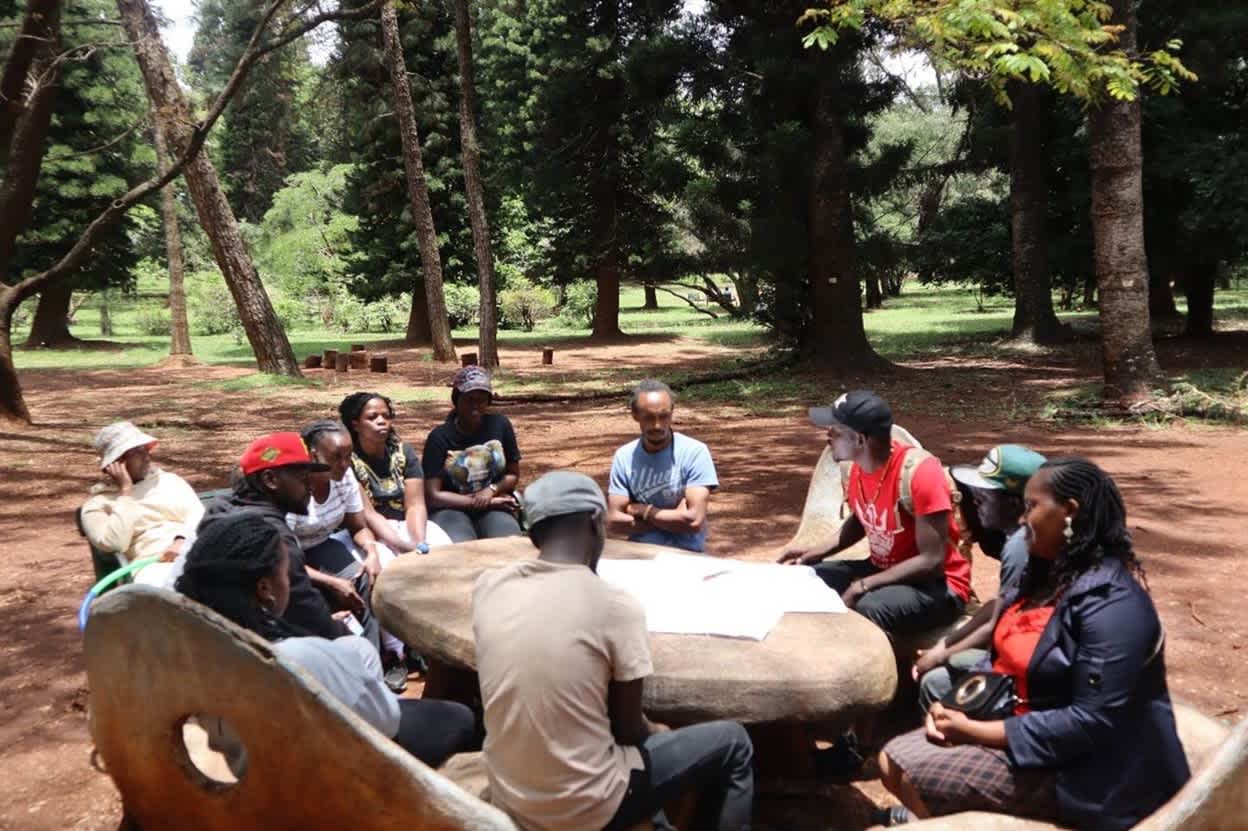
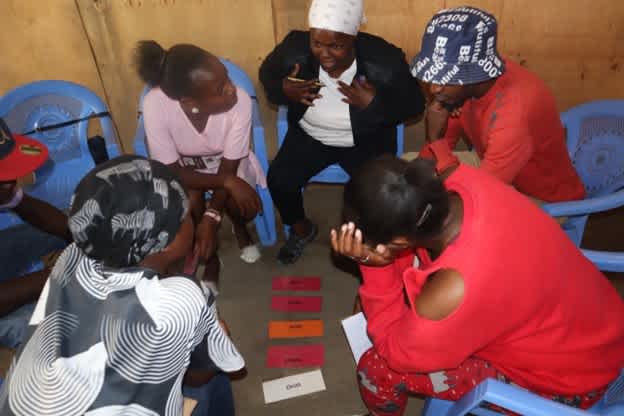
4. Triple Nexus: Humanitarian, Development, and Peacebuilding Training
LPI’s training on the Triple Nexus—Humanitarian, Development, and Peacebuilding (HDP)—addresses the critical interconnections between these sectors, emphasising their collective role in fostering resilience within communities. In 2021 and 2023, LPI delivered specialised resilience training using the Resilience in Conflict Analysis Toolkit (RCAT) for members of the ACT Alliance and the Kenya 4 Resilience Network. Participants acknowledged the pivotal role of peacebuilding components in their programming, underscoring how integrating humanitarian action, sustainable development, and peacebuilding can create a more holistic approach to tackling complex challenges and ensuring long-term stability.
To deepen understanding and enhance practical skills, LPI offers a comprehensive five-day training programme focused on HDP resilience programming. This immersive experience equips participants with the tools and strategies needed to effectively navigate and implement initiatives that encompass all three dimensions. By fostering collaboration and shared goals, the training empowers organisations to design interventions that not only address immediate needs but also lay the groundwork for sustainable peace and development.
5. Peacebuilding Training
The Life & Peace Institute offers a dynamic 4–5-day training programme designed to equip participants with practical tools and strategies to address conflict, foster resilience, and promote peacebuilding in their communities. Through interactive sessions, participants explore conflict analysis techniques such as the Five Ws and One H, conflict trees, and stakeholder mapping, gaining a deeper understanding of local conflict dynamics. The training emphasizes participatory methodologies, including group work, scenario-building, and role-playing, enabling participants to develop actionable solutions and build empathy. Activities like the "Shoe Game," "Balloon Exercise," and "Conflict Proverbs" encourage creative problem-solving and reflective learning, while discussions on inclusion, gender, and mediation highlight the importance of diverse perspectives in peacebuilding efforts.
The programme also focuses on leadership and mediation skills, guiding participants through the principles, stages, and tactics of effective mediation. Through mock mediation exercises and scenario discussions, participants learn to navigate complex conflicts, foster dialogue, and build trust within communities. The training culminates in visioning exercises and action planning, empowering participants to transform challenges into opportunities for resilience and peace. By combining open-source knowledge with hands-on learning, this training ensures participants leave with the confidence and skills to drive meaningful change in their contexts.
Peacebuilding training is essential in today’s world, as it equips individuals and communities with the tools to address root causes of conflict, foster dialogue, and build sustainable peace. According to open-source research, peacebuilding initiatives reduce violence, promote social cohesion, and strengthen community resilience. By investing in such training, individuals gain the capacity to mediate disputes, advocate for inclusivity, and implement conflict-sensitive approaches, ultimately contributing to safer, more equitable societies. The Life & Peace Institute’s programme is a vital step toward empowering leaders to create lasting impact in their communities. This training has been offered to the State Department of the Development of the Arid and Semi-Arid lands, Religious leaders in Nachu and Kajiado, The Kesho Alliance in Garissa, Uzalendo Afrika Initiative in Mombasa and Strategies for Northern Development in Marsabit. and a number of community Based organisations
6. Advocacy for Peace Training
LPI’s training on advocacy for peace equips organisations with the knowledge and skills necessary to influence policies and drive positive change within communities. Advocacy encompasses strategic and deliberate actions aimed at altering or influencing policies, positions, or systems. It involves defending ideas, raising awareness, and educating others about critical issues. Through negotiation and mediation, advocacy connects influential networks and decision-makers to your proposals, motivating them to take action. Our training underscores the vital role of advocacy in persuading policymakers to acknowledge challenges, debate solutions, and implement specific policy actions that reflect the needs of the community.
This intensive three-day programme provides participants with a comprehensive understanding of advocacy and its significance. They learn to identify the key elements and steps of effective advocacy, as well as recognise and overcome potential barriers. By fostering a bottom-up approach, the training empowers local organisations to lead community-driven advocacy initiatives that genuinely address the needs of the people.
LPI has successfully delivered this training to members of the ACT Alliance in Juba, partners such as SUPKEM and The Kesho Alliance in Garissa, the Uzalendo Afrika Initiative in Mombasa, and Strategies for Northern Development in Marsabit. These efforts have led to impactful advocacy actions, including stakeholder breakfast meetings and petitions addressing pressing issues such as youth unemployment. Reach out to LPI for this essential training to amplify your advocacy efforts and drive meaningful, lasting change in society.
DONORS
Donors and organisations who have supported LPI’s work in Kenya over the past 15 years include: the Swedish International Development Cooperation Agency (Sida), Swedish Mission Council, Church of Sweden, United Nation Develop Programme Africa Borderlands Centre (UNDP - ABC), Peace In Our Cities (PIOC), United States Agency for International Development (USAID), Saferworld, Freidrich Ebert Stiftung (FES), European Union’s Instrument Contributing to Stability and Peace (EU IcSP), the United Kingdom Department for International Development (DFID), the United States (US) Department of State (DoS) and Folke Bernadotte Academy (FBA).
Pushed to the Brink: Perceptions, Experiences and Knowledge of Urban Violence in Nairobi
The Resilience in Conflict Analysis Toolkit (RCAT) Analysing Resilience: A Peace and Conflict Model
Mapping of Climate Security Adaptations at Community Level in the Horn of Africa
Kenya - Nairobi
LPI’s Kenya programme operates from our office in Nairobi, Kenya.
Postal Address
Life & Peace Institute, P.O. Box 64495-00620, Nairobi, Kenya
Visiting Address
AACC Compound, Waiyaki Way, Nairobi, Kenya
Phone +254 (0) 20 4440433
